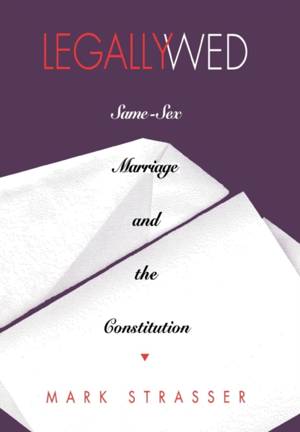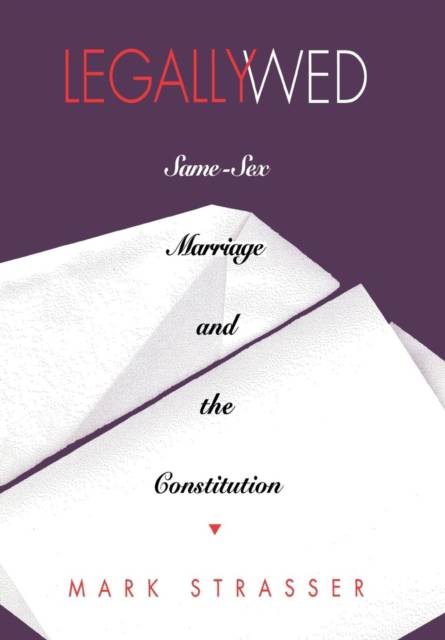
- Retrait gratuit dans votre magasin Club
- 7.000.000 titres dans notre catalogue
- Payer en toute sécurité
- Toujours un magasin près de chez vous
- Retrait gratuit dans votre magasin Club
- 7.000.0000 titres dans notre catalogue
- Payer en toute sécurité
- Toujours un magasin près de chez vous
Description
In a new preface, Mark Strasser discusses recent developments in the legal battle over same-sex marriages in Hawaii. He anticipates the likely state and nationwide impact of the Hawaii Supreme Court's decision.
Mark Strasser examines the issue of same-sex marriage in light of contemporary constitutional and domestic relations law, showing why the usual arguments against recognizing such unions are either weak or irrelevant.
The Supreme Court has articulated numerous interests promoted by marriage, all of which apply to same-sex as well as opposite-sex couples. According to Strasser, the argument made most frequently to deny recognition to same-sex unions--that marriage exists to provide a setting for the production and raising of children--is in fact a reason to acknowledge such unions. The claim that marriage is for children biologically related to both parents is refuted in the case law, which treats biological and adopted children as legally indistinguishable.
Strasser explains Baehr v. Lewin, the precedent setting case in Hawaii, and addresses the implications of state-by-state decisions to ban or recognize same-sex unions. He analyzes what it would mean to say that a policy violates the Equal Protection or Due Process Clauses of the Constitution, and compares biased polices that target gays and lesbians with those that victimize racial minorities.
Strasser argues that the Defense of Marriage Act (DOMA) is both unconstitutional and a public policy disaster. It does not give states additional rights with respect to which marriages they need not recognize, Strasser explains, but only with respect which divorces they need not recognize. For example, DOMA seems to allow an individual to avoid a court-imposed duty to support an ex-spouse of the same sex simply by changing his or her domicile. Moreover, Strasser argues, DOMA is an open invitation for states to demand exceptions that will wreak havoc in domestic relations law.
In a recent response to conservative arguments about marriage, Legally Wed explicates established and involving legal principles, and shows how invidiously these have been applied to the issues of gay rights in general and same-sex unions in particular.
Spécifications
Parties prenantes
- Auteur(s) :
- Editeur:
Contenu
- Nombre de pages :
- 256
- Langue:
- Anglais
Caractéristiques
- EAN:
- 9780801434068
- Date de parution :
- 27-03-97
- Format:
- Livre relié
- Format numérique:
- Genaaid
- Dimensions :
- 157 mm x 233 mm
- Poids :
- 494 g

Les avis
Nous publions uniquement les avis qui respectent les conditions requises. Consultez nos conditions pour les avis.






